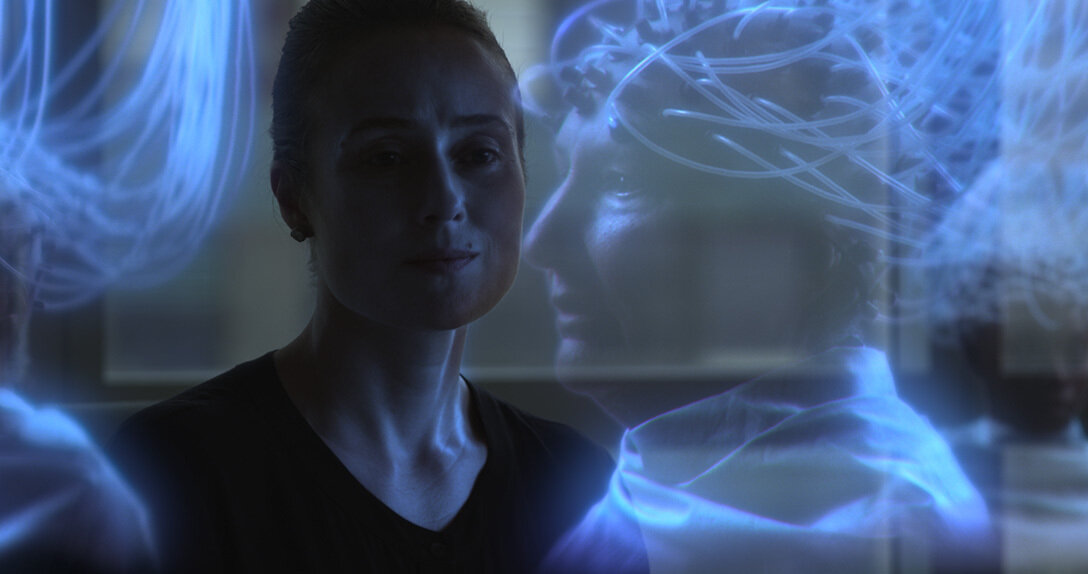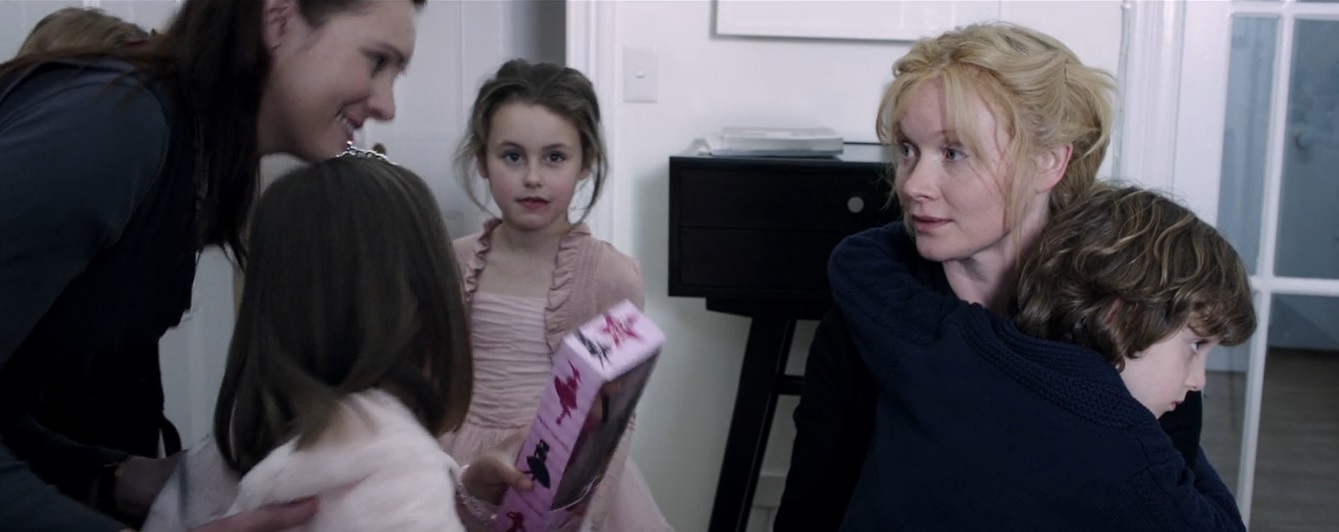Screenshot
By Andrea Thompson
Determination didn’t seem like the right word to describe how far one mother was willing to go to provide a future for her daughter in the 2015 film “Advantageous.” What Gwen (Jacqueline Kim), the mother in question, was trying to accomplish was no less than fighting her way through an entire system built around the commodification of her body and her life. Hence my search for a word which would somehow adequately describe Gwen’s resolve to quietly triumph over the odds. Would any do her justice? Not a new discovery exactly, but rather, a rediscovery of sorts.
Dictionary.com defines perseverance as “steady persistence in a course of action, a purpose, a state, etc., especially in spite of difficulties, obstacles, or discouragement.” However, there is another, theological element to the word, which is defined as, “continuance in a state of grace to the end, leading to eternal salvation.” It’s a deceptively simplistic concept that might also be the ultimate dream, the source of every fairy tale: if we meet life’s difficulties with dignity, we will get a happy ending.
If only, if only. If only life didn’t give us so much to overcome, or at least a guarantee of some sort of reward for endurance. What truly makes Gwen’s struggles so damn heartbreaking isn’t only that salvation remains elusive, it’s the dystopian world she’s fighting is so damn familiar. At first, she and her 13-year-old daughter Jules (Samantha Kim) seem to be among the haves in a world where the have-nots are steadily growing more plentiful. And the most impoverished among them seem to be women.
It’s not exactly unfamiliar, but “Advantageous” reveals the brutality of this world in an understated, sensitive fashion, all within the budget the film was clearly on. The credit goes not only to director Jennifer Phang, but lead Jacqueline Kim, who also co-wrote the screenplay in addition to giving an incredible performance as a woman who comes to the realization that her hard-fought affluence is built upon an even shakier house of cards than she believed. After Gwen loses her job, everything threatens to come tumbling down.
True, Gwen had a cushy gig selling cosmetic procedures for the Center For Advanced Health And Living, but she was also working below rate on a contractual basis. Her firing is also the direct result of a backlash which emphasizes women returning to the home, as well as valuing their youth and beauty above all else. Gwen is only middle-aged, but the Center already views her as too old to appeal to the highly coveted younger demographic. The labor market has also mostly gone pure tech, and the only viable employment Gwen can find is as an egg donor, since women are rapidly becoming infertile. To make matters worse, Gwen is also on the verge of ensuring Jules a place in an elite world which is closing itself off to newcomers at an even more accelerated rate. A world that requires money for entry.
As Gwen’s desperation grows and she exhausts all her alternatives, she reluctantly decides to take the option the Center was manipulating her into all along, and undergo their radical new procedure, that of transferring a person’s consciousness into a new body. In Gwen’s case, it’s a younger, more racially ambiguous one, which will allow her to do her new job more effectively and boost the Center’s sales even more as Gwen 2.0. But like anything that seems too good to be true, it definitely is, and Gwen discovers it is not her consciousness itself which will be transferred, but rather a copy of it. This twin, essentially, will then awaken in her new body with all her memories and believe she is Gwen, since she’ll know nothing else. But she’s have an entirely separate awareness. Her particular, original consciousness will cease to exist, a murder in the name of progress.
Horrific? Very much so, but Phang and Kim are aware it isn’t accidental that a woman of color is sacrificed so a company can make its bottom line. Such systems often require a certain amount of complicity, more often than not by white women. That complicity isn’t addressed as personified by Jennifer Ehle’s role as Isa Cryer, who has unspecified, high-ranking position at the Center For Advanced Health And Living. The conversations between Isa and Gwen are a reflection of the vast gulf between them, with Isa, the far more privileged white woman, casually referencing Gwen’s obstacles, including her more advanced years, as if the two weren’t about the same age.
Sundance Institute
Even their very real commonality is weaponized against Gwen. When Isa tells her, “There is nothing fiercer than a mother’s love,” it’s nothing approaching an attempt to connect. It’s an excuse, a way to convince herself that what she’s doing to Gwen isn’t murder, but an obstacle to be overcome, where her motherly instincts will surely enable her to pull herself up by her bootstraps. Just what happens to a bond as fiercely loving as the one between Gwen and Jules, who is unaware her mother is committing suicide to ensure her future?
The answer is one of the creepier aspects of “Advantageous.” Jules initially believes Gwen has simply awakened in a new body, but their past closeness is what makes Jules realize this latest model is an entirely different person. Freya Adams does fantastic work as Gwen 2.0, who advocates the very process that has caused her so much mental and physical anguish, and destroyed the love she felt for her daughter. Something has been lost, the film makes that clear. Perhaps because of Jules’s kindness, or because they have no one else, the two tentatively begin to form a new and complicated bond of their own, one which may be strengthened by the old one.
What remains would be easy to dismiss as fatalism, resignation, or conversely, slapped with the manditorily uplifting optimistic designation of resilience. But there’s nothing uplifting about where Gwen 2.0 ends up. Rather, it’s reminiscent of a very female strain of the aforementioned perseverance, one which mostly struggles in silence, finding grace and salvation in any small victories to be found. If it could be called noble, it’s also extremely unrewarding. While Gwen 2.0 may end with her formerly estranged family sitting around her in a beautiful park, it’s clear something undefinable and essential has been lost. She and Jules have just found grace where they can, even if salvation is out of reach.







